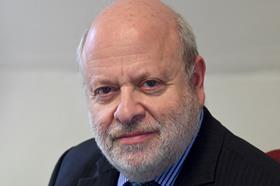There was wide coverage in the legal press last week of the report by Professor Mayson into future regulation of the legal profession.

The Law Society responded that now is not the time for such a radical overhaul. Given the economic devastation the legal sector is expected to suffer following the pandemic – and the more widespread economic downturn - the Law Society’s reasoning is understandable.
However, that position ignores the fact that Professor Mayson’s report is divided into two sets of recommendations, long-term and short-term, and its short-term recommendations are devoted specifically to the problems which are expected to arise post-pandemic.
He writes first that, post-pandemic, lawtech providers will probably be better funded, financially more resilient, and more entrepreneurial than many law firms. Second, if law firms are going to go out of business, consumers will probably be drawn even more to currently unregulated providers and unregulated technology-based legal services. Therefore, says Professor Mayson, it is even more important that alternative providers are brought in the short-term within the scope of regulation.
This should be read at the same time as the account of the Legal Service Board’s last meeting on 4 June. According to the Chair’s subsequent blog, the LSB is looking forward to what the ‘new normal’ for legal services might be, when it might be reached, and how regulation may need to evolve.
Data before the LSB suggested that unregulated businesses represent just 1% of paid-for advice, although that is thought likely to be an underestimate. While this seems small, the LSB says that it amounts to a significant number of transactions, especially in segments where unregulated businesses have higher market share.
Who exactly makes up the unregulated sector? Professor Mayson mentions will-writers, estate administrators, costs drafters, paralegals, and McKenzie Friends. He points out that many of these choose to join voluntary accreditation and registration schemes and carry professional indemnity insurance, but that those who do not pose a risk to consumers. Within the latter risk group, he also includes formerly authorised practitioners (for instance, those who have been removed from their profession because of serious misconduct) and opportunists deliberately seeking to exploit the regulatory gap.
The LSB and Professor Mayson share a common end, but not the same route for getting there.
For instance, there are various ways to deal with the unregulated sector under our system. One is to change the list of reserved activities. So, will-writing could be made a reserved activity, as has been long discussed. Professor Mayson dismisses this from his short-term goals for a range of reasons, including the time-consuming procedure needed to achieve it. But the LSB, on the other hand, is actively looking into changes to the reserved activities, which it will revisit later in the year, when different models, risks and opportunities will be discussed in more detail.
Another route – which is Professor Mayson’s preferred short-term solution - is for the LSB to establish a public register of currently unregulated providers of non-reserved activities to consumers, whether for reward or as part of a commercial activity. He says the LSB should then decide if any compensation and indemnification arrangements should be attached to those registered.
On this point, the LSB concedes only at this stage that whereas most people expect the legal professionals they engage to be regulated, it should not necessarily follow that all legal activities should be regulated.
In other words, to take account of the economic consequences of the pandemic, we need to prepare ourselves for the reality that unregulated providers of legal services might be brought into regulation. This raises difficult issues for lawyers, as I have written before. The Law Society will have to ditch its ‘not now’ policy, and sort out a policy soon.
The problem for the Law Society is that there are two sharply divided schools of thought in the profession. Purists feel that the regulator – and certainly the Law Society - should focus only on their allotted duties in relation to solicitors. To do anything else is to dilute our profession’s vital role and the regulatory protections enjoyed by solicitors’ clients.
Accommodationists, on the other hand, argue that it is unrealistic to ignore the growing share of the legal services market undertaken by the unregulated, and the good that they can bring in easing the crisis in access to justice, particularly with the aid of technology – and particularly after the pandemic. The least that the regulator can do, according to this group, is to protect the public by bringing them into some kind of regulation, even if it is only the lightest form, say by proposing guidelines or best practices.
The Law Society is going to have to straddle this divide, and come up with a policy soon to influence a change that is now staring us in the face.
Jonathan Goldsmith is Law Society Council member for EU matters and a former secretary general of the Council of Bars and Law Societies of Europe. All views expressed are personal and do not necessarily reflect the views of the Law Society Council































3 Readers' comments